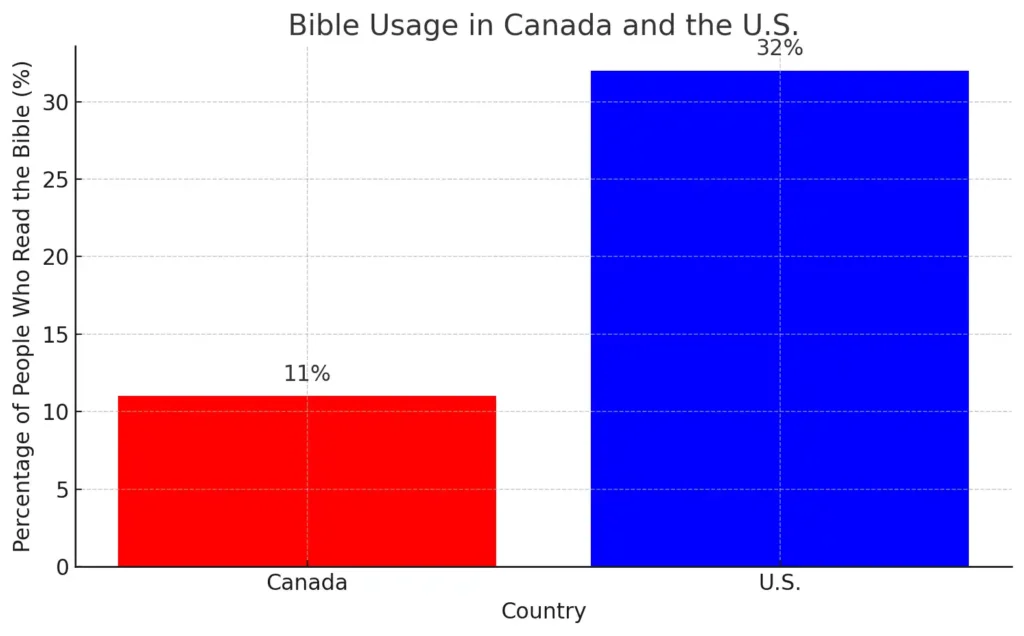Have you ever felt like your prayers were hitting a wall? Maybe you’ve prayed for something over and over, yet nothing seems to change. It can feel disheartening, even frustrating. But here’s the truth: persistence in prayer isn’t just about getting what we ask for. It’s about building an unshakable relationship with God, deepening our faith, and learning to trust His perfect timing.
Prayer, in its simplest form, is conversation with God. But like any relationship, communication needs consistency and commitment. Think of prayer as planting seeds. You may not see results right away, but each prayer adds strength and growth to your spiritual life, like roots digging deeper into the soil.
In this article, we’re going to explore three simple steps that can help you unlock the power of persistent prayer. Whether you’re new to Christianity or you’ve been walking with Christ for years, these steps will help you develop a prayer life that’s consistent, vibrant, and full of faith.
Let’s dive in, starting with the first step.
Step 1: Develop a Consistent Prayer Routine
Just like any skill, persistence in prayer comes from regular practice. Imagine an athlete training for a marathon. They don’t just run once a week and expect to succeed. Instead, they commit to a daily routine, pushing through fatigue and obstacles. In the same way, developing a consistent prayer routine is key to unlocking the full benefits of persistent prayer.
Why Consistency Matters
The Bible shows us that even Jesus made a habit of praying regularly. In Luke 5:16, it says, “Jesus often withdrew to lonely places and prayed.” This wasn’t a random act, but a spiritual discipline-a deliberate practice that kept Him connected to the Father.
If Jesus needed to maintain a consistent prayer life, how much more do we? Consistency in prayer is like watering a plant. Without it, the roots won’t grow deep, and the plant won’t flourish.
Start Small and Grow Big
You don’t need to start by praying for hours a day. In fact, many people find that starting small is the best way to build momentum. A simple morning prayer, before the busyness of the day begins, can set the tone for everything that follows. As you make this a daily habit, you’ll find that your spiritual strength grows, much like a muscle that gets stronger with each workout.
Find Accountability and Community
One way to stay consistent is to find an accountability partner or join a prayer group. It’s easier to keep a habit when you’re walking alongside others who share your goal. Consider joining a group at your church or even submitting a prayer request online where fellow believers can join you in prayer. Knowing that others are praying with you can provide encouragement, especially during tough times.
Reflect: What’s Holding You Back?
Think about it-what’s keeping you from developing a regular prayer routine? Is it time, distractions, or even uncertainty about how to pray? Reflect on the barriers that might be holding you back, and ask God for the strength and discipline to overcome them.
As we move to the next step, remember: it’s not about perfection. It’s about progress. Every prayer, no matter how small, brings you closer to God.
Step 2: Focus on Scripture and Meditation During Prayer
If prayer is the conversation, then scripture is the foundation. When we include God’s Word in our prayers, it’s like adding fuel to a fire-it ignites our faith and brings clarity to what we are asking for. In fact, praying through scripture is one of the most effective ways to align our hearts with God’s will and deepen our spiritual growth.
Praying Through Scripture: Speaking God’s Language
Imagine trying to have a conversation with someone without speaking the same language. It would be frustrating and ineffective, right? Scripture allows us to speak God’s language. His Word reveals His promises, His character, and His will for our lives. By incorporating Bible verses into our prayer time, we not only communicate more clearly but also strengthen our confidence in what we are praying for.
For example, if you’re feeling anxious or overwhelmed, praying Philippians 4:6-7 is a powerful way to seek God’s peace: “Do not be anxious about anything, but in every situation, by prayer and petition, with thanksgiving, present your requests to God. And the peace of God, which transcends all understanding, will guard your hearts and your minds in Christ Jesus.”
Meditation and Reflection: Letting God Speak Back
Prayer isn’t just about talking; it’s also about listening. After we pray, we need to make space for God to speak to us. This is where meditation comes in. Meditation on scripture allows us to quiet our hearts and minds, reflecting on what God might be saying through His Word. Psalm 119:15 beautifully captures this idea: “I meditate on your precepts and consider your ways.”
During your prayer time, take a few moments to sit in silence after reading scripture. Reflect on what you’ve read and listen for the still, small voice of the Holy Spirit. This practice of quiet reflection not only helps you understand God’s will but also strengthens your ability to discern His voice in everyday life.
Practical Steps for Praying with Scripture
- Choose a verse that relates to what you’re going through. Whether it’s a verse on strength, healing, or patience, let it be the focal point of your prayer.
- Personalize the scripture by turning it into a prayer. For example, if you’re praying with Jeremiah 29:11, you might say, “Lord, I trust that You have plans for me, plans to give me hope and a future.”
- Meditate on that verse throughout the day. Write it down, memorize it, and repeat it during your morning prayer or whenever you need encouragement.
Reflection: How Can Scripture Shape Your Prayer Life?
Consider: “Which scriptures have spoken to you during difficult times?” What would it look like to integrate those verses into your daily prayers?
A Real-Life Example of Power in Scriptural Prayer
Let’s look at the testimony of Sarah, a woman from Ontario, who felt stuck in her prayer life. She began praying the promises found in Isaiah 40:31, which says, “But those who hope in the Lord will renew their strength. They will soar on wings like eagles; they will run and not grow weary, they will walk and not be faint.” Over time, she noticed that her strength and resilience grew, even in moments of exhaustion and doubt. Her prayers became more focused, and she felt a renewed sense of purpose.
Statistics from Canada and the U.S. on Bible Usage
According to a recent survey, only 11% of Canadians read the Bible at least once a week, while in the United States, 32% of Christians reported reading scripture regularly (Pew Research). With such low numbers, the importance of scripture in persistent prayer cannot be overstated. By making it a part of daily prayer, believers are tapping into a wellspring of spiritual power that is often neglected.

Step 3: Trust in God’s Timing and Never Give Up
Prayer teaches us patience, and patience teaches us trust. One of the hardest parts of persistent prayer is the waiting. But here’s the beauty of it: waiting is never wasted when we trust in God’s perfect timing. Persistent prayer builds the faith we need to continue pressing in, even when we don’t see immediate answers.
God’s Timing vs. Our Timing: Trust the Process
Think of a gardener who plants a seed and waits for it to grow. They don’t see the fruit of their labor right away, but they trust that, in time, the seed will sprout. Prayer works much the same way. Sometimes, we plant the seeds through our petitions, but the growth is unseen-happening deep within the soil of our hearts and circumstances.
Habakkuk 2:3 reminds us, “For the revelation awaits an appointed time; it speaks of the end and will not prove false. Though it linger, wait for it; it will certainly come and will not delay.”
God’s timing is perfect, even when it feels delayed. Persistent prayer helps us align our expectations with God’s perfect plan.
Overcoming Discouragement During Delays
It’s easy to become discouraged when we don’t see quick results. In those moments, it’s essential to remind ourselves of God’s faithfulness. One of the biggest benefits of persistent prayer is that it refines our character. It teaches us to trust God, not just for the outcome, but in the process.
2 Corinthians 4:16 encourages us, “Therefore we do not lose heart. Though outwardly we are wasting away, yet inwardly we are being renewed day by day.”
Power of Not Giving Up: The Story of the Persistent Widow
Jesus Himself gave us a clear example of persistent prayer through the parable of the persistent widow in Luke 18:1-8. In this story, a widow kept coming to an unjust judge, asking for justice. Though the judge ignored her at first, her persistence finally wore him down, and he granted her request. Jesus uses this parable to illustrate the importance of never giving up in prayer, even when the answer seems distant.
Conclusion
Incorporating these three steps-developing a consistent prayer routine, focusing on scripture, and trusting in God’s timing-will unlock the power of persistent prayer in your life. Remember, prayer isn’t just about getting answers; it’s about growing closer to God, deepening your faith, and learning to trust Him more fully.
By making prayer a daily discipline, meditating on the Word, and persevering through seasons of waiting, you will experience the true benefits of persistent prayer-strengthened faith, renewed hope, and the peace of knowing God is in control.
Don’t give up. Keep praying. God is always listening.
 Do you need someone to stand with you in prayer? Whether you’re facing a challenge, seeking guidance, or simply need support, we’re here to lift your needs to the Lord. Don’t walk through this season alone-let us pray for you.
Do you need someone to stand with you in prayer? Whether you’re facing a challenge, seeking guidance, or simply need support, we’re here to lift your needs to the Lord. Don’t walk through this season alone-let us pray for you.
Submit your prayer request today and experience the power of united prayer.
Discover more from Christian Victory
Subscribe to get the latest posts sent to your email.




